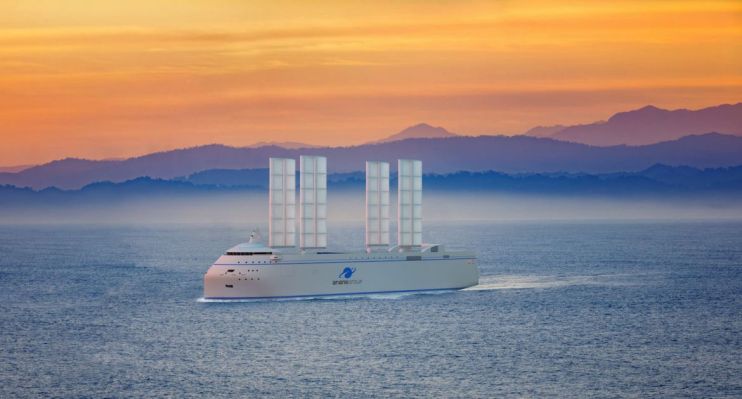Shipping sector proposes $5bn fund to cut emissions

The global shipping industry will this morning submit a proposal to form a $5bn research and development fund for decarbonising the industry.
Shipping currently accounts for two per cent of all global emissions.
Read more: Global banks are leading the charge to decarbonise shipping
The fund, which will operate over a ten-year period, is designed to accelerate the development of commercially viable net zero ships by the early 2030s.
The International Maritime Research and Development Board (IMRB), as the fund will be known, will be financed by the payment of a mandatory $2 for every tonne of fuel a shipping company buys.
Esben Poulsson, chairman of the International Chamber of Shipping (ICS), which represents 80 per cent of the world’s merchant fleet, said:
“The coalition of industry associations behind this proposal are showing true leadership. The shipping industry must reduce its CO2 emissions to meet the ambitious challenge that the International Maritime Organization (IMO) has set.
Innovation is therefore vital if we are to develop the technologies that will power the 4th Propulsion Revolution. This proposal is simple, accountable and deliverable and we hope governments will support this bold move.”
Under IMO rules, the sector must cut total greenhouse gas emissions by 50 per cent by 2050, regardless of any growth in trade volume.
In order to do so firms must improve their carbon efficiency by an average of 90 per cent, which is not compatible with the long term use of fossil fuels.
The proposal is co-sponsored by associations such as Bimco, Cruise Lines International, Intercargo, Interferry, ICS and the World Shipping Council.
The ICS’ secretary general Guy Platten said: “We must not leave it to others to carry the burden of addressing the climate crisis.
“Nor will we ask others to decide the future of maritime. We embrace our responsibility, and we ask the world’s governments to support our efforts.
“Greta Thunberg is right to say that ‘creative accounting and clever PR’ often lie behind supposed commitments to sustainability, but our plans are transparent, and our regulator has teeth.
“Now we ask the wider shipping community for their blessing. Change on this scale is difficult and often daunting. But in this case, it could not be more necessary.”
Read more: This mesmerising data viz shoes all of the world’s shipping routes
The proposal comes as the global shipping sector gears up for new rules on the maximum amount of sulphur that will be allowed in their fuel.
The legislation from the IMO, which comes in to force on 1 March, is an attempt to reduce sulphur emissions by 80 per cent.
Main image credit: French Shipowners’ Association